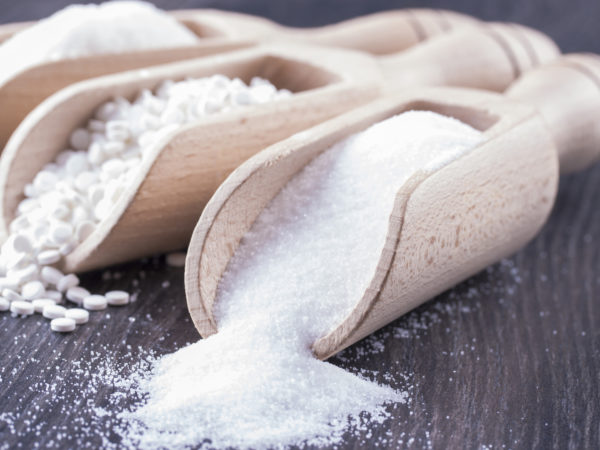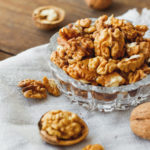Alternatives To White Sugar

Americans consume about 20 teaspoons of sugar daily, not including what is found naturally in foods like fruit, milk and beans. Sugar itself is considered safe, and its caloric contribution may be small when used in moderation, but it can play a role in adult-onset diabetes, obesity and dental problems if abused. Some alternatives to white sugar include:
- Stevia. This plant-derived sweetener is non-caloric and can be used in baking or cooking but needs to be diluted before using. I occasionally recommend it for diabetics and those who want something with a sweet taste, but need to avoid the blood sugar spike.
- Honey. While it has some antioxidant properties, honey is not necessarily healthier than white sugar, mainly because it can stick to teeth and contribute to cavity formation. However, honey does have more fructose than sugar, which causes less stress on the pancreas, but potentially more burden on the liver and blood triglyceride levels. Use sparingly, for flavor, and opt for 100 percent honey or raw honey rather than processed versions. Always try to use less than a recipe calls for to cut down your sugar intake.
- Splenda (sucralose). This artificial sweetener is 600 times sweeter than sugar. It is not all-natural, being derived only in part from sugar, and while it is FDA approved and appears safe, it has not proven itself to be beneficial in losing weight. The reason may be tied to the tongue sensing the sweetness and triggering some of the same weight-gaining hormones as if it were the real thing. There is also recent data that sucralose and aspartame (below) may have a negative effect on the healthy bacteria of the microbiome compared to other options.
- Aspartame and Saccharine. These artificial sweeteners are found in some foods and are available to add to drinks and some foods. For the same concerns as Splenda, I do not recommend either of these – if you want to cut calories or are diabetic, I suggest stevia instead.
- Sugar alcohols like erythritol and xylitol. These have become more and more popular in foods and drinks. While large studies have not been done, the ones that have suggest these to be safe and have no impact on blood sugar. In practice, it seems some people may get digestive bloating with these sweeteners, so I recommend moderate use when needed but avoid heavy reliance on them.
- Allulose. Allulose is a newer sweetener just starting to be available. It is naturally derived, often from dates or figs. It has a similar mouth feel and baking quality as white sugar with only 10 percent of the blood sugar effect.
You may also want to try a moderate amount of fruit juice or unsweetened applesauce as a sweetener, especially when cooking or baking. Keep in mind, however, that if you’ve been using sugar appropriately, there is no reason to reach for artificial substitutes.
Today’s Health Topics
Editor's Pick
Health Focus
Ask Dr. Weil's Q&A
| sponsor | ||
 |
||
|
||
|











